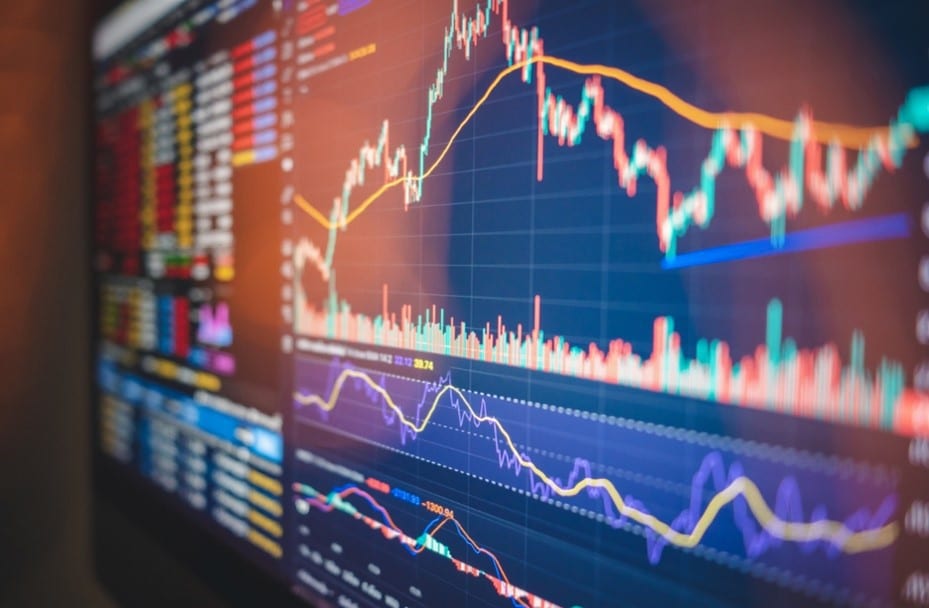

In most countries around the world, forex trading is a popular form of trading among retail investors. The global forex markets are open 24 hours a day, Monday to Friday, and the average forex trading volume is over $7tn daily. As many traders know, the forex market is not only the largest trading market in the world but also the most liquid, making it very appealing to active traders, particularly day traders.
Forex traders tend to think in terms of currency pairs, as each trade involves trading one specific currency against another. Common currency pairs include USD/EUR and USD/GBP, but you can trade any currency pair you want if your broker includes that pair in its forex offerings.
When we talk about forex trading, we are referring to fiat currencies. That is a country’s official currency backed by the national government and the central bank. Some forex traders also trade cryptocurrency, which is seen as a very different trading market with distinct characteristics.
Forex Trading and CFDs
Many forex traders use Contracts for Difference (CFDs) to trade currency pairs. It involves using leverage to trade larger volumes than you would otherwise be able to and means you are speculating on the movements in the currency markets without owning the underlying currencies. Brokers tend to offer currency pairs in the Major, Minor, and Exotic categories. The liquidity is greatest for the Major pairs, and the leverage offered is generally much higher.
You will need to find a regulated CFD broker to trade with, and there are a few things to be aware of. CFD trading is not legal in every country, and there can be a lot of rules and regulations governing the practice. You’ll have to check if it’s possible in your country and what restrictions exist. CFD trading can be riskier than other forms of trading because using leverage can amplify losses as well as profits. However, it allows for larger trading volumes and is undoubtedly one of the contributing factors to the growth in forex trading globally.
Forex – The Largest Capital Market in the World
The turnover of the forex market is around ten times bigger than the bond market and 50 times the size of the equity market. It has a daily trading volume totalling trillions of dollars worldwide. The ease of online trading via many authorised brokers has significantly increased the trading volume.
Another contributing factor is the development of automated trading tools and various technical indicators that make trading easier for individuals. However, the forex market does not only, or even predominantly, cater to retail investors.
Who Participates in the Forex Market?
Despite the rise of retail trading (that is, by individual investors, as opposed to institutions and professionals), most transactions within the forex market are not retail trades. Most currency trading occurs between banks, corporations, governments, financial professionals and other institutions. Central banks sometimes intervene to stabilise prices and prevent large price swings that could impact the market.
If you’ve ever investigated opening an account with a brokerage, you may have noticed that alongside a range of retail accounts, such brokers often offer professional accounts that require a very high investment and come with much larger leverage levels. That indicates how many institutions and professionals are involved in forex trading.
Related Articles
- How to Change Leverage on MT4
- Why Currencies Trade Against the Dollar
- Diversifying Your Portfolio With Foreign Currencies
What are Reserve Currencies and How Do They Affect Forex Trading?
Reserve currencies, also known as foreign exchange reserves, are funds central banks hold for use in international transactions and investments. They also help maintain stability in the global markets and financial systems. Large financial institutions might also have reserve currencies for investment purposes.
The US dollar (USD) has served as the world’s reserve currency since 1944 when the Bretton Woods Agreement saw 44 countries adopt the USD as their official reserve currency. That is why the strength of the USD is so influential in the world markets and why other governments monitor US monetary policy closely. As the most common reserve currency in the world, the USD is a ‘safe haven’ currency that strengthens other economies in uncertain times.
For example, when the war in Ukraine broke out in 2022, the value of the USD increased against most currencies, particularly the euro, because Western Europe and the Eurozone are close to Ukraine; however, the USD increases in value during almost any political or economic crisis, due to its reserve currency status.
The vast majority of forex trading involves the USD, with the USD/EUR currency pair being the most heavily traded pair on the market. USD/EUR trades comprise over 20% of total forex transactions worldwide. The three next most commonly traded pairs also include the USD against the Japanese yen, the British pound and the Swiss franc. The USD is on one side of 88% of all forex trades.
The Dramatic Growth of the Forex Market
The forex market has seen massive growth reasonably consistently since the 1970s. The daily forex market turnover in 1977 was estimated to be just $5bn. Ten years later, in 1987, it was closer to $600bn; in 1992, the market hit $1tn in turnover. By 2007 the value of the market was $3tn, and in April 2022, the global forex markets had a daily turnover of 7.5tn dollars.
The figures, of course, only represent daily turnover. The total value of the forex industry is estimated to be around $1.93qdn, with seven major currency pairs making up 85% of the forex markets’ trading volume. Because of technological advances, trading is much easier using online platforms, particularly forex trading mobile apps, causing dramatic growth in the market.
Trading via a mobile device became more popular than desktop trading for the first time in 2022, with 55% of trades completed via mobile and only 45% via a desktop.
People Also Read
- Liquidity Preference Theory
- Benefits of High Forex Market Liquidity
- What Can the Fear and Greed Index Tell Us About Forex Markets
Growth Factors in Forex Trading
There are numerous reasons why forex trading has grown so much in recent years. A few include:
- Technology – This refers not only to the fact that online trading has impacted the market but also that information is much more readily available online, including forex trading education and market news.
- Globalisation – This has led to increased international trade resulting in a greater need for foreign exchange and more interest in foreign currency values.
- Higher levels of global awareness – Investors have a sound understanding of international events that impact currency values and present threats and opportunities concerning the currencies they hold.
- International Investment – Investors are looking at global opportunities that might provide better yields and direct currency trading due to the appreciation of different currencies.
- Advances in computing technology – Numerous forex trades can be processed electronically, resulting in faster and more reliable execution.
- Better trading tools – There are now technical indicators and other trading software that allow for better and more easily automated analysis and risk management, as well as things like automated trading and social trading.
The Benefits of Liquidity in the Forex Market
Liquidity refers to the volume of trading activity in a particular asset class over a specific period. Its liquidity affects the ease with which an asset can be converted to cash. The forex market has high liquidity compared to other markets, especially when trading the most commonly traded pairs.
Other asset classes are seen as less liquid because they do not have the fast turnover seen in the forex markets. The real estate market is an example of a very low liquidity market, where it is rare to sell an asset quickly, sometimes taking years to ‘liquidate’ a property (that is, not only close a sale but also see the cash from that sale).
Liquidity is essential because a liquid market makes regular trading easy and potentially profitable. A lack of liquidity can result in a situation where there are not enough buyers to sell to or vice versa.
Less liquid markets can mean a lack of orders to buy or sell, leading to excessive price fluctuations. It can also cause execution costs to be higher, making trading more expensive overall for investors.
Summary
Ultimately, there is now what many investors would call a perfect storm regarding forex trading. The technology allows for easy trading from any device, helped by all kinds of automation and software that make the entire process more efficient.
Global awareness and real-time reporting allow traders to act fast when external factors impact the global markets, and a highly liquid, almost always open, widely traded and easily accessed forex market makes active trading easier for retail and institutional investors.
Put all these factors together, and it is easy to see why forex has become the world’s largest and most commonly traded market.
Choose one of our Top Forex Brokers
| Broker | Features | Regulator | Platforms | Next Step | |
|---|---|---|---|---|---|
 73% of retail CFD accounts lose money
Founded: 2014 73% of retail CFD accounts lose money
Founded: 201473% of retail C... |
|
FSA SC | MT4, MT5 | ||
 Your capital is at risk
Founded: 2014 Your capital is at risk
Founded: 2014 |
|
FSPR | MT4 | ||
 Your capital is at risk
Founded: 2006 Your capital is at risk
Founded: 2006Europe* CFDs ar... |
|
ASIC, FSA, FSB, MiFID | MetaTrader4, Sirix, AvaOptions, AvaTrader, Mirror Trader | ||
 Between 74-89% of CFD traders lose
Founded: 2010 Between 74-89% of CFD traders lose
Founded: 2010Between 74-89 % of retail investor accounts lose money when trading CFDs |
|
ASIC, FCA | MetaTrader 4, MetaTrader 5, cTrader | ||
 77% of CFD traders lose
Founded: 2007 77% of CFD traders lose
Founded: 200777 % of retail investor accounts lose money when trading CFDs with this provider. You should consider whether you understand how CFDs work, and whether you can afford to take the high risk of losing your money. |
|
ASIC, CySEC, FCA | eToro Platform | ||
 Your capital is at risk
Founded: 2009, 2015, 2017 Your capital is at risk
Founded: 2009, 2015, 2017 |
|
ASIC, CySEC, IFSC | MT4 Terminal, MT4 for Mac, Web Trader, iPhone/iPad Trader, Droid Trader, Mobile Trader, MT5 | ||
 Your capital is at risk
Founded: 2006 Your capital is at risk
Founded: 2006 |
|
CySEC, DFSA, FCA, FSB, SIA | MetaTrader4, MetaTrader5, cTrader, FxPro Edge (Beta) | ||
Forextraders' Broker of the Month
BlackBull Markets is a reliable and well-respected trading platform that provides its customers with high-quality access to a wide range of asset groups. The broker is headquartered in New Zealand which explains why it has flown under the radar for a few years but it is a great broker that is now building a global following. The BlackBull Markets site is intuitive and easy to use, making it an ideal choice for beginners.
